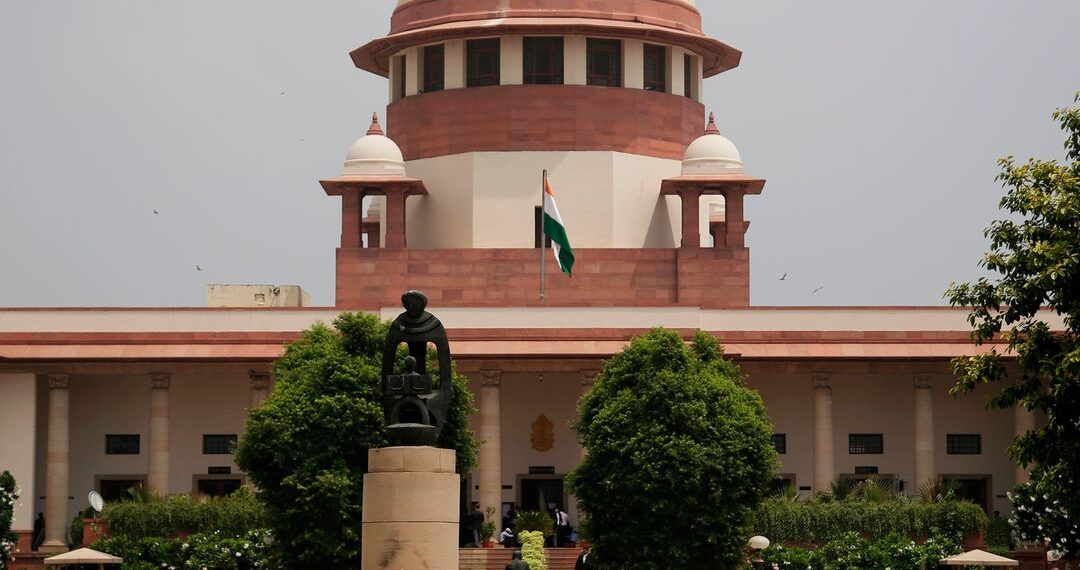New Delhi: The Supreme Court on Wednesday directed that even if a person is convicted of a heinous offence, his house cannot be demolished by the state without following the due process of law.
A bench comprising Justice B R Gavai and Justice K V Viswanathan said the right to shelter is fundamental and cannot be violated arbitrarily.
The bench laid down stringent norms to curb bulldozer justice employed by certain states and said no house of an accused can be demolished only because he is accused of an offence, the truth of which will be determined only by the judiciary.
The bench said, if the houses of accused or convict are demolished without following the process of law, his family will be entitled to compensation and also that those officers who acted arbitrarily or illegally would be proceeded against.
The bench further said, there is no place of the highhanded approach of the state and its machinery to demolish private or commercial properties of accused persons by assuming the role of the judiciary and in pre-judging the guilt of the accused persons, which can only be determined by the judiciary.
The SC said it is seen that even if a house of an accused is illegal, the authorities pick and choose to demolish the accused person’s house without touching similar illegal structures in the vicinity.
This is wholly illegal, the bench said.
The apex judiciary said, even if a person is convicted of a heinous offence, his house cannot be demolished by the state without following the due process of law.
The executive cannot become judge, demolishing home of any accused without following the due legal process is unconstitutional, the court said.
Even for convicted individuals, razing their property cannot be a punishment.
He said the rule law has to be complied with even in case of violations of municipal laws, and eople have to be given adequate time to respond to and challenge demolition notices
The court said it is not a pleasant sight to see women and children rendered homeless, and commented that heavens will not fall if the authorities lend them a hand for some period
The judgs ruled that a minimum of 15 days notice should be given by means of registered post and pasted on the outer portion of the house.
The court said the authorities have to begin complying with the above process within a month, and a digital portal for such notices should be set up within three months
Even if demolition is found necessary, reasons should be given as to whether the full property or only the illegal part has to be razed.
It said 15 days each have to be given for the appellate process, if any, and for removing illegal construction by the affected party themselves
The judgement said all demolitions have to be videographe, and cautioned that any violation of the guidelines will invite contempt, with the officials being liable to pay costs from salary. UNI


